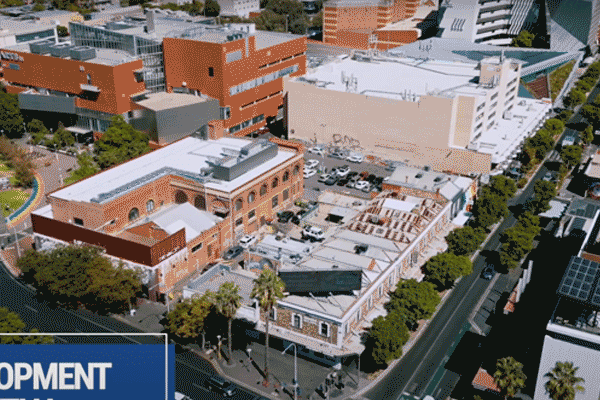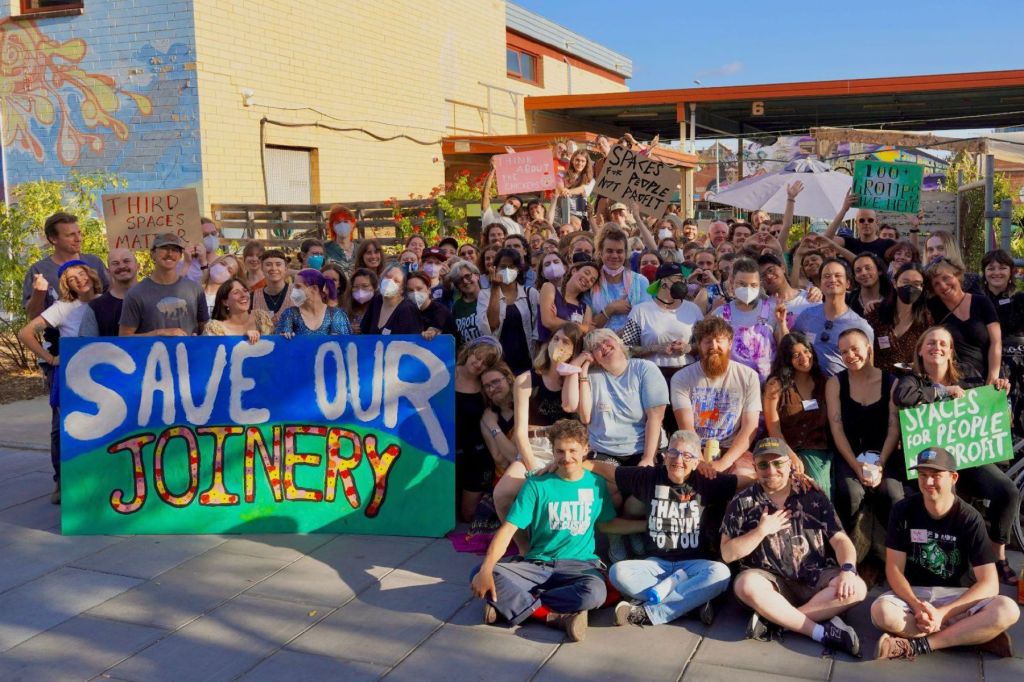Love lasts eternal at Bowerbird design market
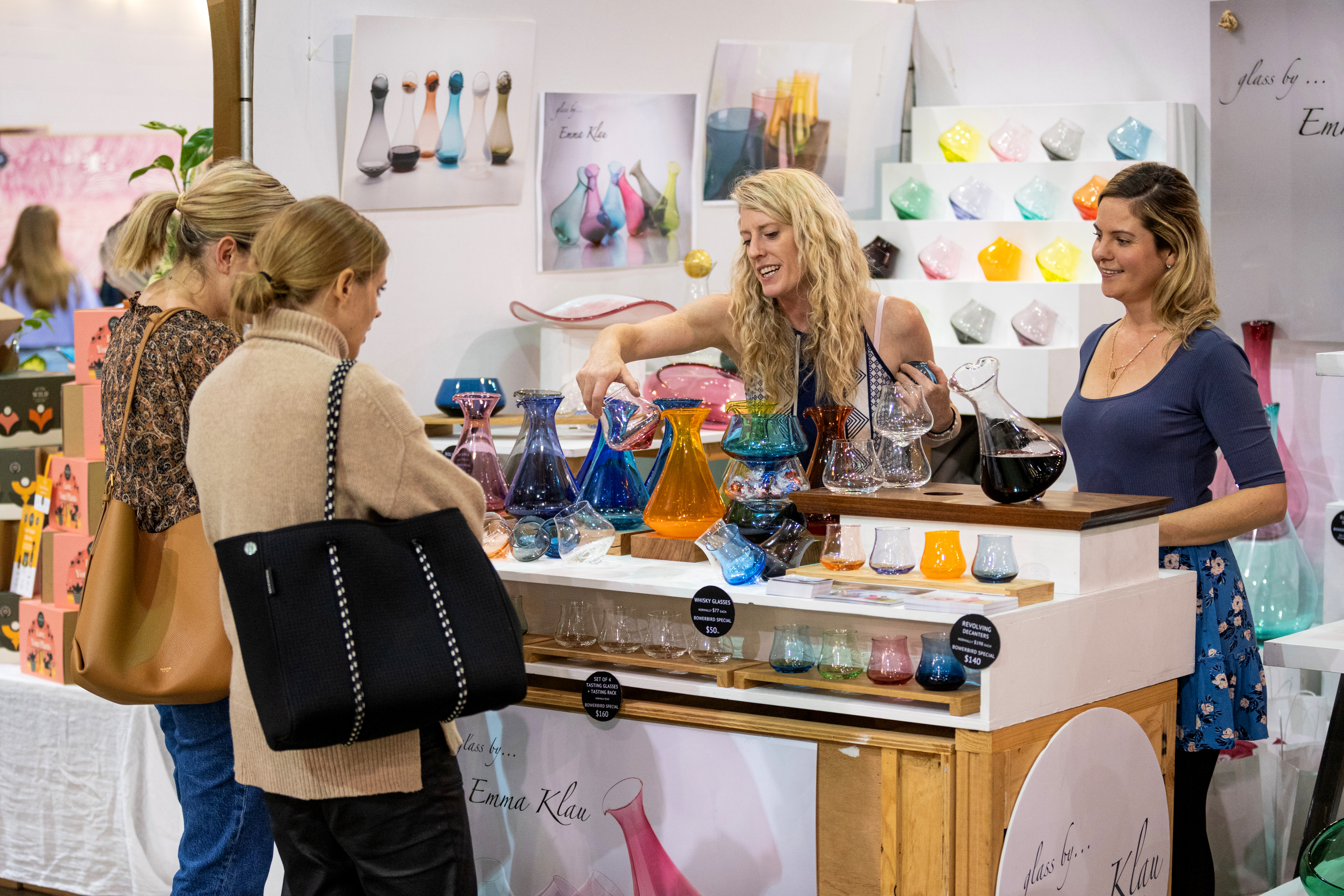
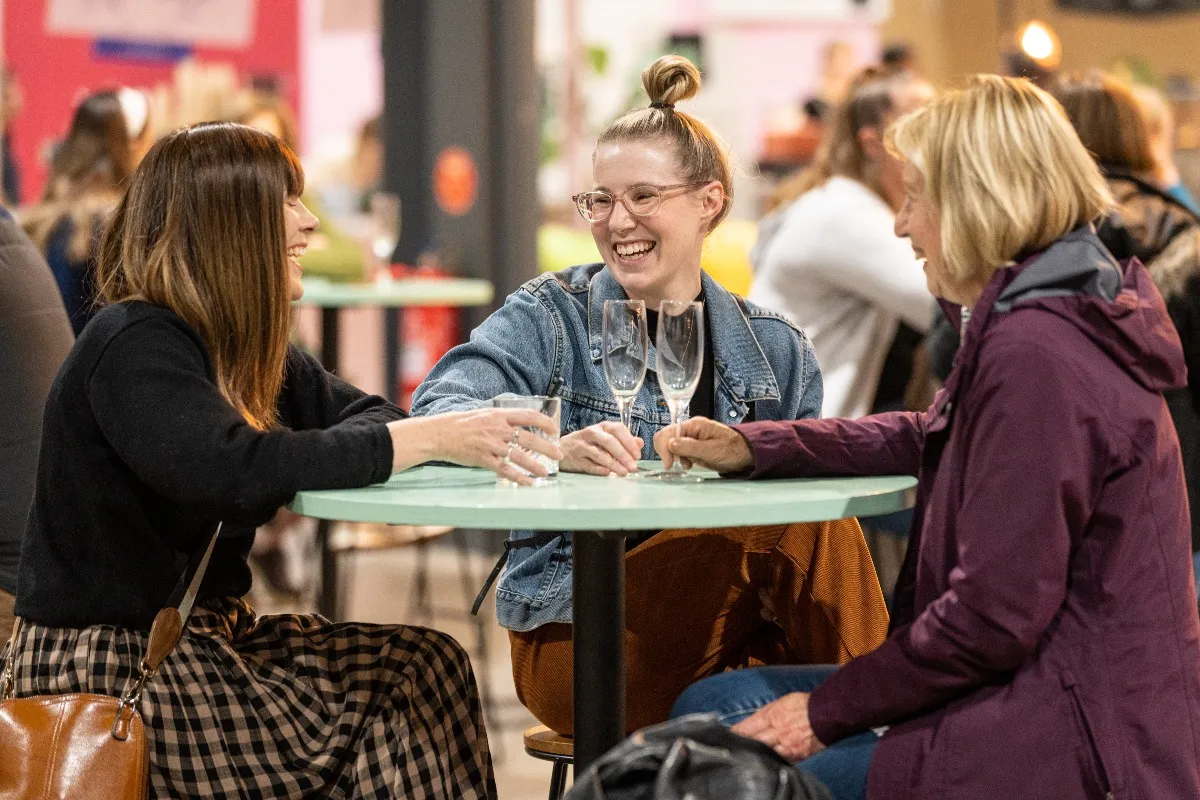
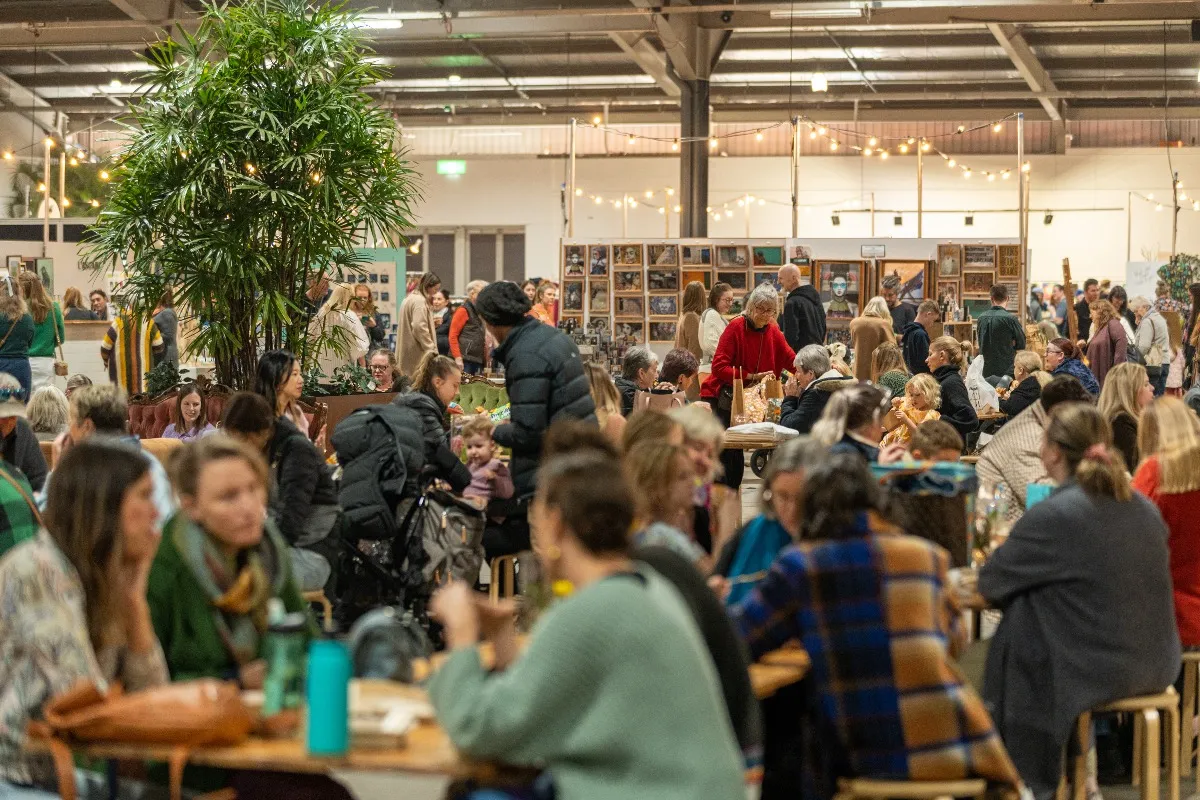
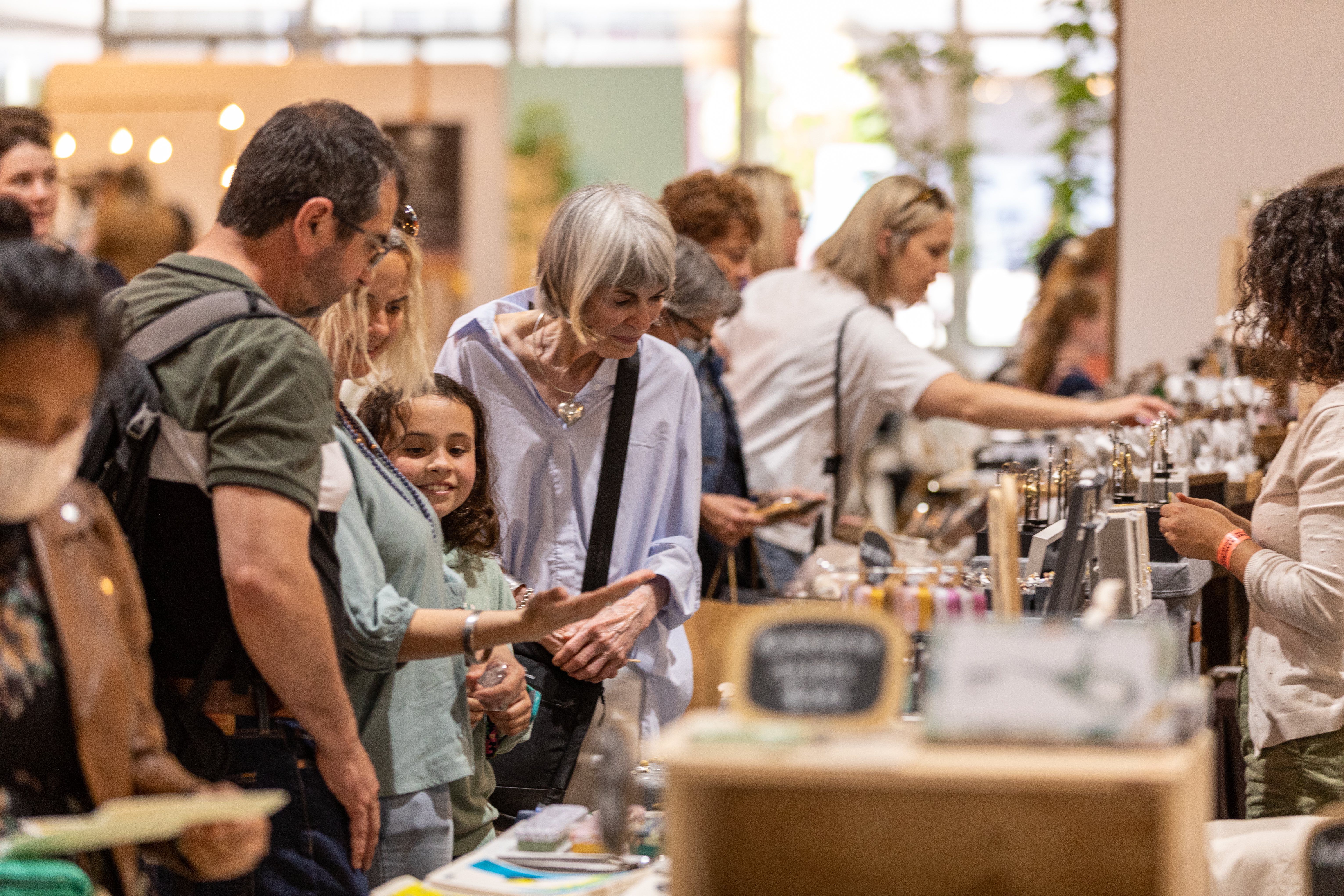
Bowerbird returns on the first weekend in May, bringing with it a host of makers from Australia-wide whose designs are made to outlast fads and fast fashion.
Bowerbird owner Peggy Byrne is a self-confessed “romantic buyer”, falling in love with something and feeling compelled to have it.
While she doesn’t think about purchases in terms of cost per wear or utility, she knows where her heart lies.
“I have pieces that cost a fair bit that I wear regularly, but I also have t-shirts from the 90s that I will wear until they literally disintegrate,” says Peggy.
“So, one part of the buying decision – and justification – does rest on quality and durability of course, but there’s a lot to be said for that ‘coup de coeur’ that you sometimes get with an item.”
The philosophy of ‘buy once, buy well’ resonates with the audience that Bowerbird attracts, says Peggy, whose small business provides a platform for many others.
The curated event pulls in designers who make in limited runs, including many who handmake their items – so by its very nature, Bowerbird is a place for conscious purchasing.
“Putting it another way,” says Peggy, “I think all our designers create products that are worth buying,”
“That’s because they have a story, they have a purpose, and they come from a small creative business that cares about their customers.”
The driving force behind brands Tuukjet and BeeKeeper Parade, Koky Saly says his life “depended on kindness” when he and his family fled the Cambodian civil war and were resettled in Melbourne.
“When I finished uni, I wanted to say thank you to people that got us out,” explains Koky, who has a Masters in International Development.
“We managed to raise enough money to build five schools back in Cambodia, but we couldn’t raise enough to support their operation.”
That led to launch of BeeKeeper Parade, upcycling unwanted, donated shirts into backpacks. A chance meeting with a fabric distributor at one of the markets delivered an ongoing supply of free upholstery and curtain swatches.

The Sophia Saly School in Kep, Cambodia
You might like
“They’re beautiful, very expensive, little fabric pieces that end up in landfill because it takes a lot of time to break those books down,” says Koky.
The YouTube-taught sewer created a new backpack design that took off on Instagram. This led to a pop-up shop in Melbourne Central, and thanks to high foot traffic and sales, it became a permanent tenancy.
BeeKeeper Parade now employs a team in Cambodia, led by a single mum, to make the backpacks and other products. So far, the social enterprise has enabled around 6000 students to be educated at the schools and – for the first time – last year, four students went on to study at university.
His Tuukjet brand of pannier-meets-messenger bag for bike riders is handmade by him, his best mate Lachlan McIntosh and Kai James in a warehouse in suburban Thomastown.
Sophia, Koky’s sister, passed away from cancer ten years ago and 50 per cent of profits from Tuukjet go to cancer research. Lachlan is a cancer research scientist at WEHI (previously the Walter and Eliza Hall Institute of Medical Research).

Koky with some of his bags made from upcycled materials
The bags are made from upcycled vinyl billboards and truck tarps. At Bowerbird, they’ll also launch a new collection using materials from donated leather sofas.
“When you throw away your sofa, the sides and back are like new because no one sits there – it’s quite beautiful leather,” says Koky.
Zero waste is important to Tamika Bannister, owner of Tasmanian size inclusive (XXS-3XL), ethical clothing label The Spotted Quoll.
The company uses certified organic fibres, like linen, hemp and cotton, in its garments, with most of the fabric scraps reimagined into another product or sold from their Launceston factory as factory bundles.
“We’re doing some research and development with an Australian company that recycles the tiny pieces that literally can’t be used for anything,” says Tamika.
The plan is for the shreds to all be recycled as fill for the label’s cushions.
The Bowerbird market at Adelaide Showground from 2-4 May will see 120 makers selling their products.
Peggy says many of those attending return regularly to see their favourite designers to add to their wardrobe or home décor.
“There’s a loyalty to our makers, which transcends trends,” she adds.

One of the dresses from the AW2025 collection of The Spotted Quoll

Tamika with her fabrics, all printed in Tasmania
This will be The Spotted Quoll’s first outing at the market, but Tamika says they already have customers in Adelaide.
“We have a bit of a cult following across Australia … We’re very much a brand that once you meet us and know who we are, and try the garments on, you tend to stay a customer for life. It’s very much a community of like-minded, conscious consumers.”
It’s important to her that the pieces last physically and aesthetically. “Longevity in slow fashion is what we’re all about … If you get it out of the wardrobe in 10 years’ time, it will look as good as the day you bought it,” she says, noting that most fast fashion is made from non-biodegradable synthetic fibres and likely will end up in landfill.
Subscribe for updates
“It’s all about buying something once and buying well.”
Adelaide-based Peter Hanlon of Glacier Jewellery Design doesn’t make the fine, wirelike rings or bangles that have been all over social media for the last few years. “Quite often you can see the rings are splitting after a while … I like that mine are robust and can be worn for many years or passed on for generations,” he says.

Robust and individual – Peter makes statement rings that can be worn everyday
He’s been making jewellery for over a decade – his family gifted him a JamFactory course in 2013 where he was the only male student in the group of ten.
“I thought, am I meant to be here? But as soon as the instructor showed the group how to make a sterling silver band, I was hooked.”
The stones he uses are sourced from around the world, often from micro businesses like his own. “There might be a husband-and-wife team who mine turquoise in the US and I’ll find one or two pieces that I really like and turn it into something special.”
Commissions are another area of his business, with customers sending him stones to work with. “Sending those rings back is a joy,” he says.
Alecia Moriarty is another Adelaide artist with a stall at Bowerbird.
Her background is in architecture and residential design, but when she picked up a paintbrush as a hobby, it felt like “finally being home”, she says.
Now painting full-time, she finds inspiration in the everyday.
“I’ll spot something or how light will hit an object … and I’m constantly taking photos of magical moments that I really want to capture in paint,” Alecia says.

A trio of Alecia’s still life paintings
Like Peter, she is energised by people telling her of the connection they have with her work.
“Sometimes the objects I paint might remind them of memories like playing in the garden as a child, or the little things that people seem to connect with.
“I think that’s such a lovely, lovely thing for them to be able to bring that into their lives.”
Peggy says Bowerbird brings together all types of products, each presented by the maker or designer themselves.
“All of them are small creative businesses who want to share their products –whether prints, perfumes, pickles, or pottery – with people who care how things are made,” she adds.
“Our customers gain a new respect for the products they purchase because they can speak to the designer directly and know they are sharing a piece of someone’s life, someone’s dream, someone’s hard work.
“That’s the difference with the Bowerbird shopping experience, it’s a connected and engaging way to shop.”
Alecia agrees. Handmade products, she says, feel as if there’s an emotion imbued within them.
“Things made by hand already have this sort of inbuilt history to them that we can find meaning in.
“It goes beyond just being décor, to form part of the person who you are, your history and memories.
“It’s that deep connection to handmade and original things.”
Bowerbird is on at Adelaide Showground from 2-4 May. Visit the website.
